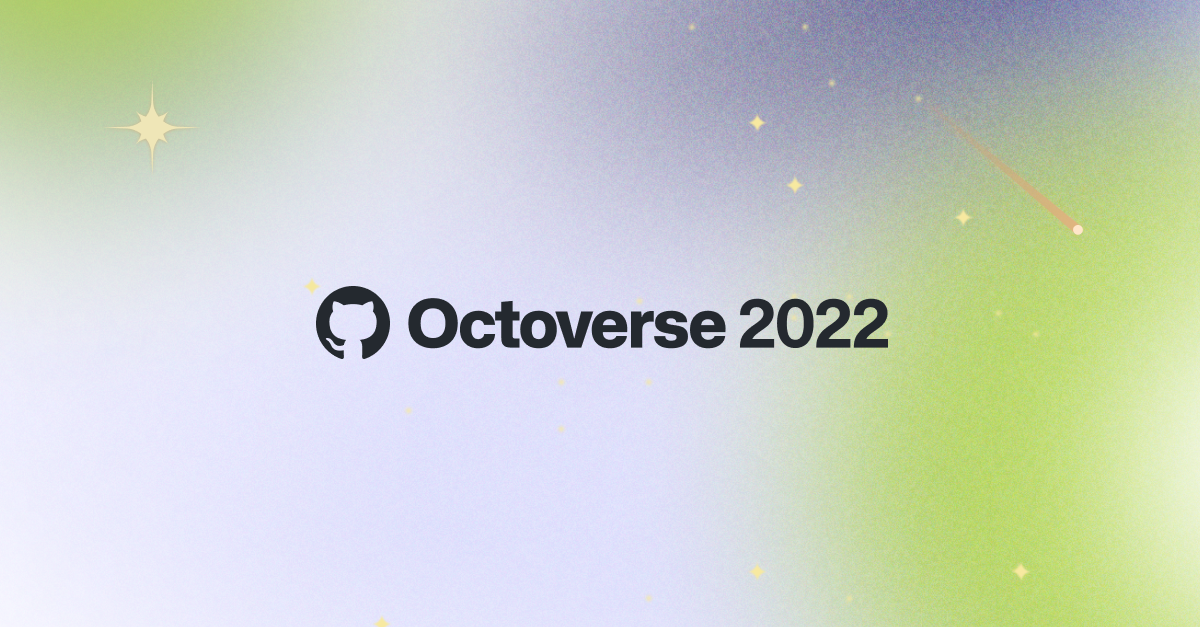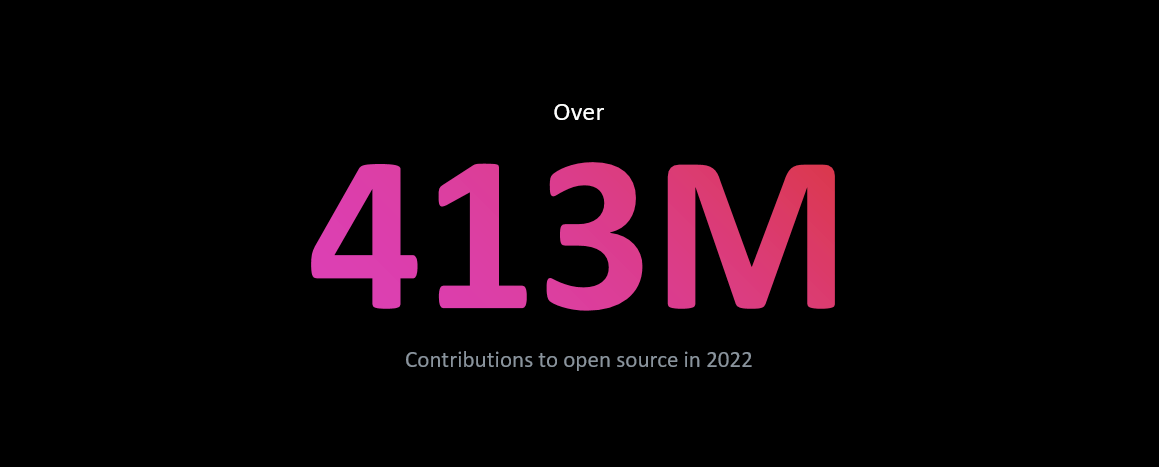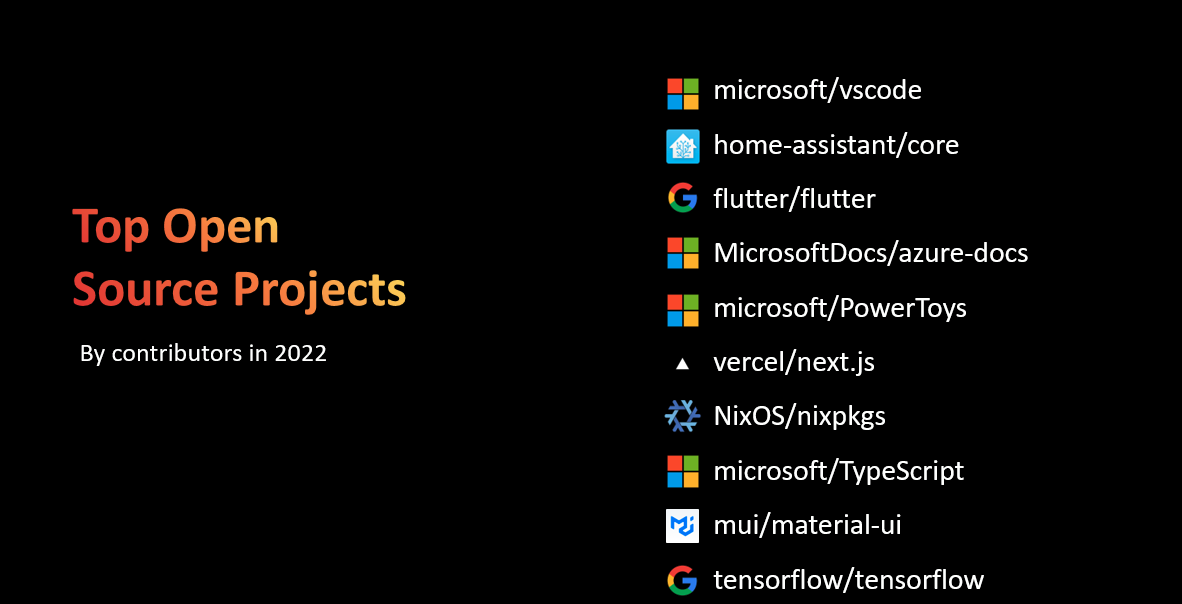Octoverse 2022: 10 years of tracking open source
How is open source changing the world and impacting businesses? In this year’s Octoverse report, we identified three big trends to watch.

| What to know: We recently published our 2022 Octoverse report where we explore the impact open source software is having on developers and companies. |
10 years ago, we released our first Octoverse report to celebrate the developers on GitHub and explore the state of open source.
It was a radically different world. In 2012, there were 2.8 million developers on GitHub and companies were mainly using open source to power their web servers. Big-name open source projects, like Docker and Kubernetes, didn’t even exist in the public space.
Today, more than 94 million developers are on GitHub, and open source—which is now the foundation of more than 90% of the world’s software— has completely changed how most businesses (and developers) build applications.
These are some key findings from the recently released Octoverse 2022 report (which you can see for yourself here). But this year, we had a different guiding question to answer: How is open source changing the world and impacting businesses?
In this year’s report, we identified three big trends to watch:
- Infrastructure as code opens up. In 2022, the fastest growing language on GitHub was the Hashicorp Configuration Language (HCL) and there were additional gains in the Shell and Go communities. This indicates that infrastructure as code (IaC) is picking up with more open source communities—and, by extent companies—adopting the practice to automate deployments.
-
Big tech is building big open source communities. Far from the past when companies looked at open source with suspicion, businesses are investing in open source technologies—and building big communities around their own open source technologies. In 2022, some of the biggest open source projects on GitHub were commercially backed. This means more money, more talent, and more code in the open, which is a net-win for the community.
-
First-time open source contributors start with commercially backed projects. After crunching the numbers, we found that 50% of first-time contributors work on commercially backed open source projects. These aren’t organization members either (that is, people who work for the company behind the project). This is less surprising when you think of some of the projects in question—like Next.JS, React, and VS Code. This shows that these large projects are bringing more people into the open source community.
And those are just the top-level findings.
In 2022 alone, developers started 52 million new open source projects on GitHub—and developers across GitHub made more than 413 million contributions to open source projects. This pace of development and collaboration is remarkable, and it’s a testament to the power software has in shaping our lives.

In the last decade, open source has become a key engine of growth for everything from businesses to solo game developers to the United Nations and NASA.
Organizations today are increasingly relying on a complex web of open source technologies to build products and platforms quickly. The ability of any one company or team to produce the amount of software required for any one product or service is overwhelming. Case in point: today, a modern luxury car has more lines of code than a fighter jet.
This is, in part, why more companies are building and contributing to open source software. By our count, more than 30% of Fortune 100 companies now have open source program offices (OSPO) to coordinate strategies in open source. And notably, the largest open source projects by contributor count are almost all commercially backed.

Learn about the state of open source software
Dive into what’s happening in the world of open source and the people, companies, and teams behind some of the biggest projects in this year’s Octoverse report.
If you prefer to listen, the video below from GitHub Universe breaks down some of the key takeaways from this year’s report (free registration is required to watch).

Catch up on everything from GitHub Universe 2022
Last week, we held our annual GitHub Universe conference—and it was full of everything from product announcements to technical tutorials to industry insights.
Here’s the best part: You can watch all of our sessions for free online (registration required). Whether you’re interested in open source, DevOps, AI, the cloud, or security, there are tons of videos waiting for you with industry experts.
And if you want to jump to our new product announcements, we’ve got you covered. Check out our roundup of Universe news to see what’s new, what technical previews are available, and how GitHub is doubling down on building the best developer platform (and experience) to help you push what’s possible.
Tags:
Written by
Related posts

We need a European Sovereign Tech Fund
Open source software is critical infrastructure, but it’s underfunded. With a new feasibility study, GitHub’s developer policy team is building a coalition of policymakers and industry to close the maintenance funding gap.

GitHub Availability Report: June 2025
In June, we experienced three incidents that resulted in degraded performance across GitHub services.

From pair to peer programmer: Our vision for agentic workflows in GitHub Copilot
AI agents in GitHub Copilot don’t just assist developers but actively solve problems through multi-step reasoning and execution. Here’s what that means.